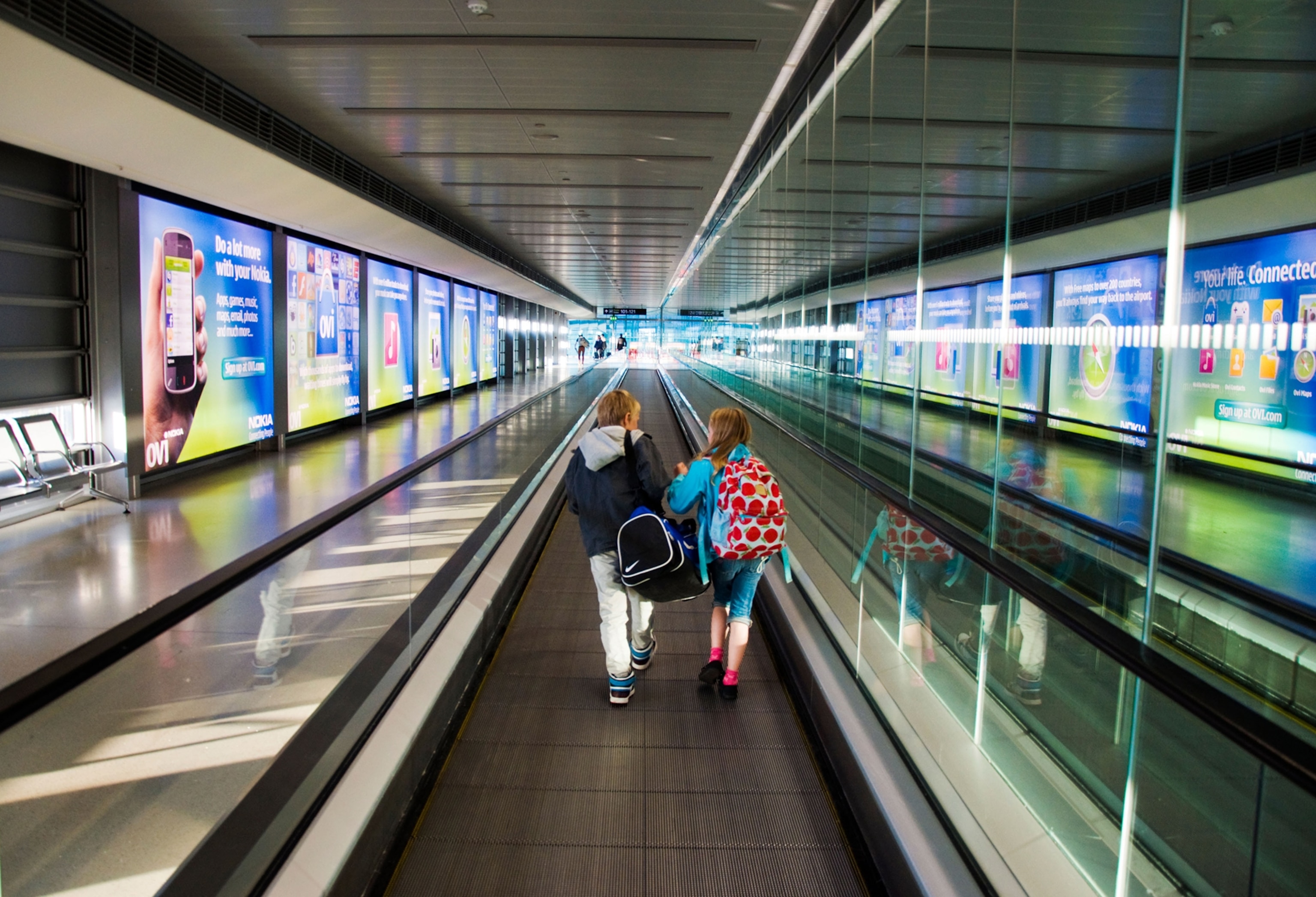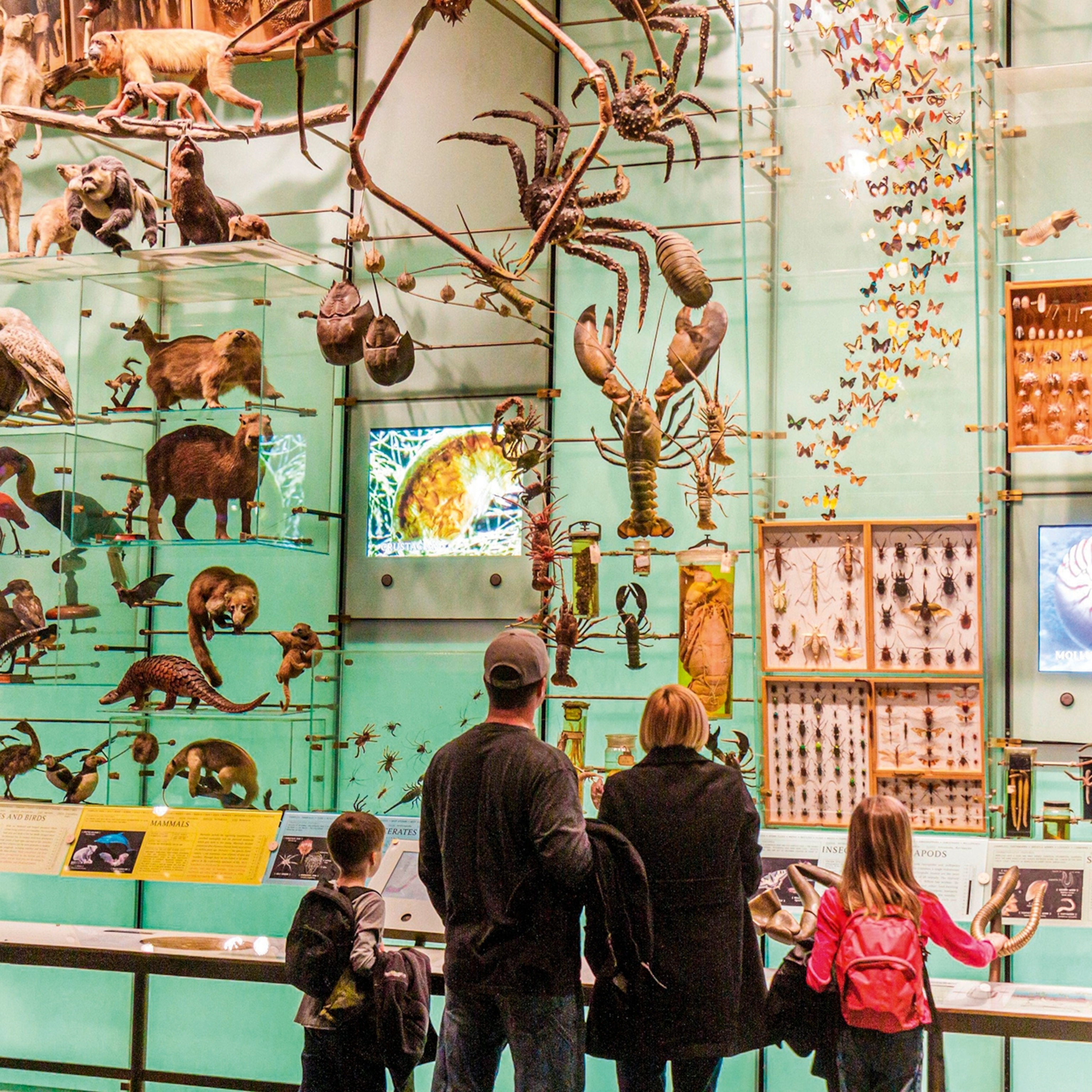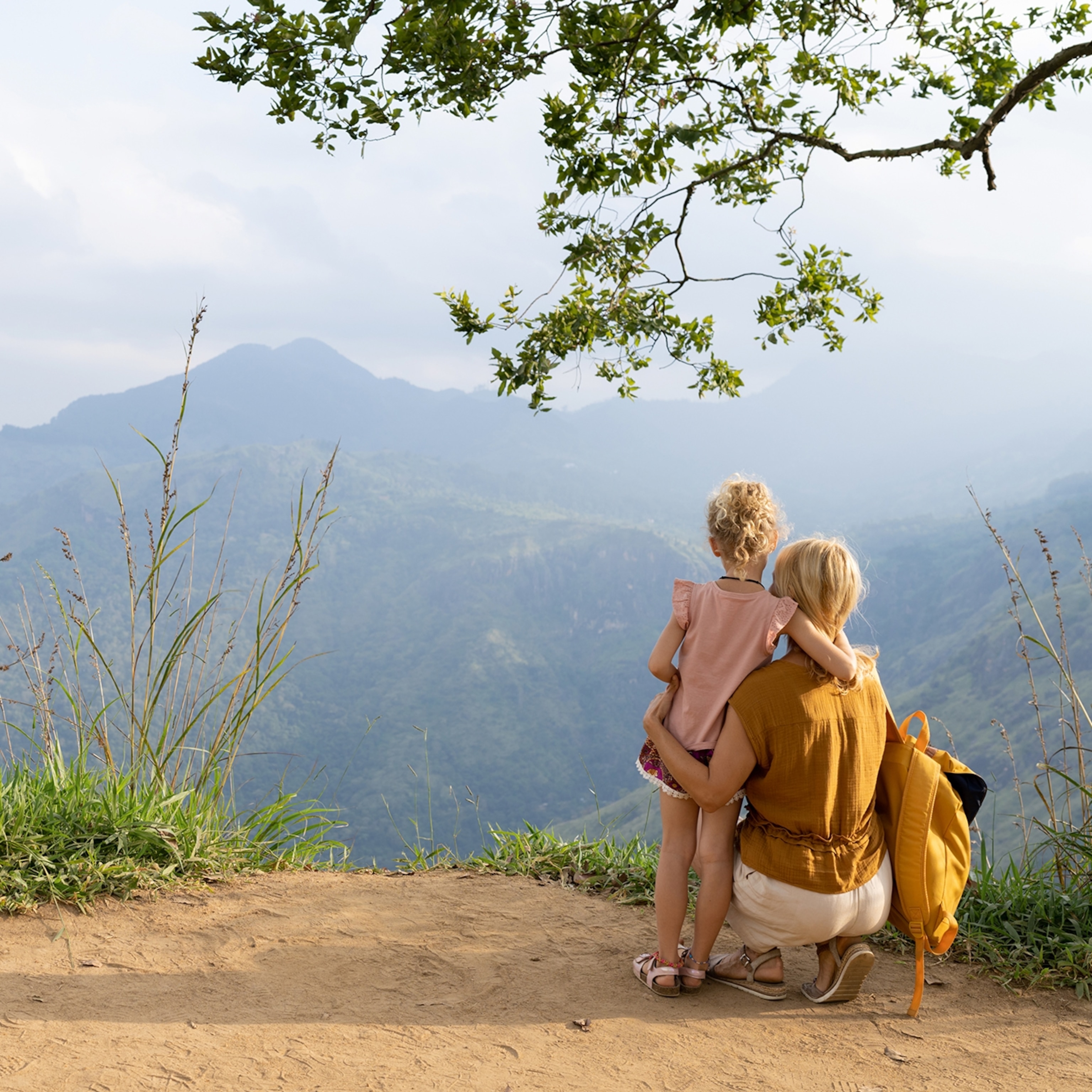
Five Ways to Get Kids to Love Travel
Family travel guru Heather Greenwood Davis offers tips on how to get children to be curious about the world ... beyond Disney World.
I knew I had a child who loved travel on my hands when my eldest son turned to me to suggest that we consider Russia for our next family getaway.
This, from the same kid who five years earlier whined that “it wasn’t fair” that his school chum was going to Disney World for a week while we were “forcing” him to take a yearlong trip with us around the world.
Somewhere between the terra-cotta warriors and riding a camel at the pyramids he changed his tune.
Travel can take some time to grow on children.
When you’re used to simply tapping the person next to you to get another helping of Goldfish crackers, having to wait for the seat belt light to go off to use the bathroom or being asked to try food that looks nothing like anything you've ever eaten before can be trying.
The benefits of raising children who enjoy traveling—exposure to things they'd never see at home, the ability to adapt to new situations, and the development of a wider worldview that's sure to serve them well throughout their lives chief among them—are huge.
None of those things are top of mind when you're an eight-year-old. So it’s up to the adults in a child's life to set them on that travel-loving path. Here’s how to start:
1. Watch television.
I know, it seems counterintuitive: You want to show your kids the world and I’m suggesting you start by turning on the tube? Yes, yes I am.
One of the first opportunities I had to discuss travel with my kids was a result of places they saw on TV. When the Little Einsteins cartoon characters went to France, my kids’ interests were piqued. We used Dora’s Spanish to talk about places in the world where that language was spoken and just about any show featuring animals led to me pulling out the albums of my past safari escapades.
Movies and books (the Madagascar franchise touches on Africa, New York City, and Europe; Madeline is set in Paris; The Lord of the Rings trilogy was filmed in New Zealand) will win them over, too. Through stories they loved—and the common language they provided—we started traveling together long before we took our first family trip.
2. Test the waters.
The middle of a long expedition isn’t the time to find out that your child is afraid of being away from home.
Start small with nights or weekends away to places that are only slightly less familiar. (Let's be honest, you'll be doing it as much for them as for yourself.)
Short trips where you can see how they react to time changes, food choices, and nap disturbances will give you the information you need to be better prepared for your next trip.
They'll also impart confidence in your children. If they can master a weekend away in a nearby town, maybe they can handle a week somewhere farther away.
3. Hand over some control.
One of the hardest things about being a kid is how little control you have over what happens to you. Travel, otherwise known as being away from home, can amplify that feeling.
Imagine (or simply think back to your own childhood) being whisked away without any real explanation of where you’re going, why, or what you’ll do when you get there. Not the best of sensations.
Instead, as you're planning a trip, involve your child in age-appropriate ways. Have little ones pack their own bags and talk about what they’ll need and why. Have older kids suggest things you should do, or weigh in on the hotel choice.
The conversations you’ll have while getting their input will build excitement instead of apprehension. If you can get them to buy in to your adventure before you even leave the house, everyone's trip will be the better for it.
4. Watch your language.
Parents often don’t even know they've said something until one of their children “plays” it back for them.
My husband and I used to refer to our youngest son as a “broken tape recorder.” We never knew when he was recording or when he was about to press play—a real predicament when he chose particular snippets to share at Grandma’s house.
The truth is that kids are always listening. And when you describe yourself as “nervous” or a place as “dangerous” or a flight as “really long,” they hear that, too.
- National Geographic Expeditions
My advice: Choose your words carefully when you're in their presence. Talk about your excitement for the trip, the fun you’re going to have, and the interesting things you’ll do. Keep your energy up, and theirs will follow.
5. Be willing to toss the plan.
On family trips, we can invest a great deal of time, energy, and money into making sure we tick off all the iconic spots on our must-do list. And often that’s to the detriment of the group experience.
Remember to poke your head up from your schedule every so often to see how the kids are doing. If the goal of the trip is to create positive memories, remember that there’s no penalty for changing your mind.
Spot signs of fatigue or boredom? Make a new plan. Ask your children what they feel like doing. If everyone is content building sand castles on the beach, why disrupt the moment for something that’s less of a surefire hit just because it’s on your list?
Bottom line: Let family contentment lead the way more often and you might find you all enjoy family travel more.
Heather Greenwood Davis is Nat Geo Travel’s resident family travel advocate, guru, and soothsayer. Follow her on Twitter @GreenwoodDavis and on Instagram @heathergd.






